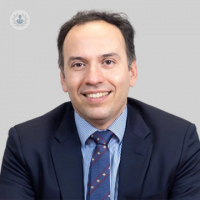A heart-to-heart about cardiomyopathies
Written in association with:Cardiomyopathies are diseases of the heart muscle that can lead to heart failure, arrhythmias, and other cardiovascular complications. They are broadly categorized into inherited and acquired forms, each with distinct etiologies, manifestations, and management strategies. In this article by Dr Konstantinos Savvatis, a leading consultant cardiologist in London, he explains two kinds of cardiomyopathies, their causes, and how they can be treated.

Inherited cardiomyopathy
Inherited cardiomyopathies are typically genetic and often run in families. These conditions are caused by mutations in genes that code for proteins crucial to heart muscle function. Hypertrophic cardiomyopathy (HCM) and dilated cardiomyopathy (DCM) are two common inherited forms. HCM is characterized by thickened heart walls, which can obstruct blood flow and cause arrhythmias.
DCM, on the other hand, involves an enlarged and weakened heart, leading to reduced pumping efficiency. Genetic testing plays a pivotal role in diagnosing inherited cardiomyopathies, helping to identify at-risk family members and enabling early intervention. Symptoms may include shortness of breath, chest pain, and palpitations. Treatment often involves medications, lifestyle changes, and sometimes implantable devices or surgery to manage symptoms and prevent complications.
Acquired cardiomyopathies
Acquired cardiomyopathies develop due to various external factors rather than genetic predispositions. Causes can include prolonged hypertension, chronic alcohol abuse, viral infections (such as myocarditis), and metabolic disorders. Stress-induced cardiomyopathy, also known as Takotsubo cardiomyopathy or "broken heart syndrome," is a notable example, typically triggered by extreme emotional or physical stress. The heart’s left ventricle temporarily weakens and balloons out, mimicking a heart attack. Symptoms of acquired cardiomyopathies are similar to those of their inherited counterparts, including fatigue, breathlessness, and swelling of the legs and ankles.
Diagnosis often requires a combination of medical history, imaging, and blood tests. Treatment focuses on addressing the underlying cause—controlling blood pressure, treating infections, and promoting lifestyle modifications to mitigate risk factors.
Cardiomyopathy management
Despite differences in etiology, both inherited and acquired cardiomyopathies share common goals in management: preventing heart failure, managing symptoms, and improving quality of life. Early detection is crucial, as timely intervention can significantly impact prognosis. For inherited types, family screening and genetic counseling are important steps in managing the disease across generations. For acquired types, identifying and modifying risk factors is key to preventing disease progression.
If you are experiencing heart problems, you can book a consultation with Dr Savvatis via his Top Doctors profile.


